JAJSEV4C December 2015 – February 2018 LMR23610
PRODUCTION DATA.
- 1 特長
- 2 アプリケーション
- 3 概要
- 4 改訂履歴
- 5 Pin Configuration and Functions
- 6 Specifications
-
7 Detailed Description
- 7.1 Overview
- 7.2 Functional Block Diagram
- 7.3
Feature Description
- 7.3.1 Fixed Frequency Peak Current Mode Control
- 7.3.2 Adjustable Output Voltage
- 7.3.3 EN/SYNC
- 7.3.4 VCC, UVLO
- 7.3.5 Minimum ON-Time, Minimum OFF-Time and Frequency Foldback at Dropout Conditions
- 7.3.6 Internal Compensation and CFF
- 7.3.7 Bootstrap Voltage (BOOT)
- 7.3.8 Overcurrent and Short-Circuit Protection
- 7.3.9 Thermal Shutdown
- 7.4 Device Functional Modes
-
8 Application and Implementation
- 8.1 Application Information
- 8.2
Typical Applications
- 8.2.1 Design Requirements
- 8.2.2
Detailed Design Procedure
- 8.2.2.1 Custom Design With WEBENCH® Tools
- 8.2.2.2 Output Voltage Setpoint
- 8.2.2.3 Switching Frequency
- 8.2.2.4 Inductor Selection
- 8.2.2.5 Output Capacitor Selection
- 8.2.2.6 Feed-Forward Capacitor
- 8.2.2.7 Input Capacitor Selection
- 8.2.2.8 Bootstrap Capacitor Selection
- 8.2.2.9 VCC Capacitor Selection
- 8.2.2.10 Undervoltage Lockout Setpoint
- 8.2.3 Application Curves
- 9 Power Supply Recommendations
- 10Layout
- 11デバイスおよびドキュメントのサポート
- 12メカニカル、パッケージ、および注文情報
パッケージ・オプション
メカニカル・データ(パッケージ|ピン)
- DDA|8
サーマルパッド・メカニカル・データ
- DDA|8
発注情報
6.8 Typical Characteristics
Unless otherwise specified the following conditions apply: VIN = 12 V, fSW = 400 kHz, L = 22 µH, COUT = 47 µF × 2, TA = 25°C.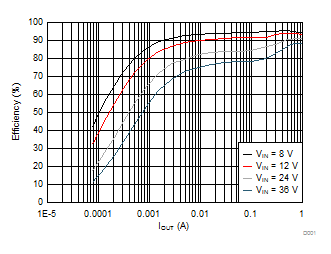
| fSW = 400 kHz | VOUT = 5 V |
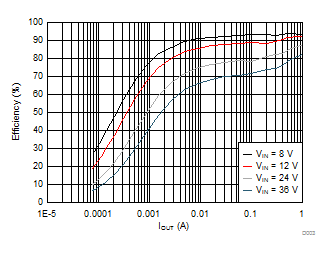
| fSW = 1000 kHz (Sync) | VOUT = 5 V |
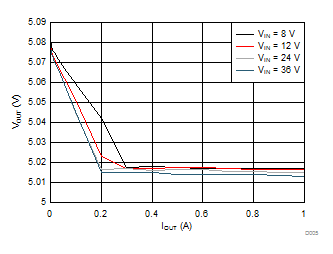
| VOUT = 5 V |
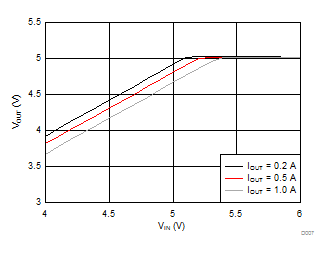
| VOUT = 5 V |
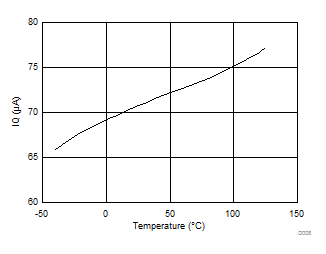
| VIN = 12 V | VFB = 1.1 V |
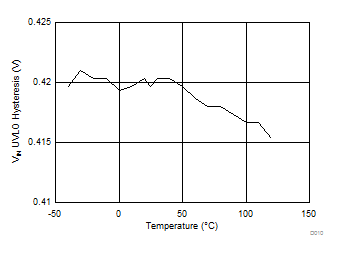
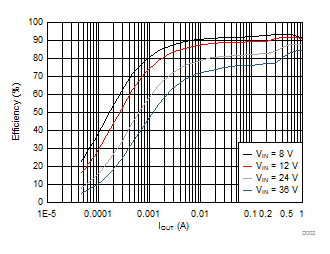
| fSW = 400 kHz | VOUT = 3.3 V |
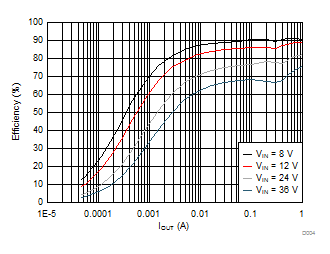
| fSW = 1000 kHz (Sync) | VOUT = 3.3 V |
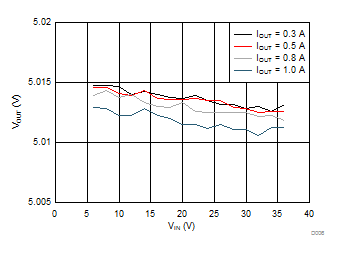
| VOUT = 5 V |
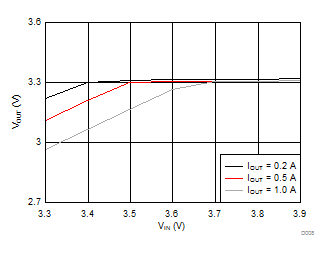
| VOUT = 3.3 V |
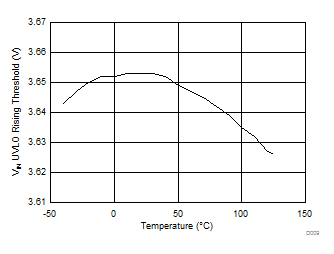
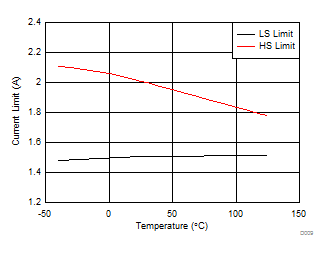
| VIN = 12 V |